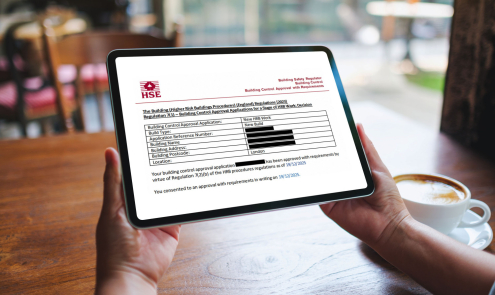2022 is the Year of Change
22 Mar 2022
With new government regulations including updates to Part L of the Building Regulations covering energy use; Part F for ventilation; the introduction of a new Part O for overheating; and Part S for the installation of electric vehicle charge points, the built environment is now working towards a green agenda, but is the industry ready to face these massive challenges, and can the electrical network cope with the move towards full electrification?
Managing Director at Whitecode Consulting, Alex Hill, looks at the year ahead and examines what this green agenda means for the industry and if 2022 really is the year of change.
I truly believe that 2022 will be the year of change, massive change for our industry in fact. With the large number of new regulations and updates to the Building Regulations we will see companies, who normally would not have to consider matters such as overheating, struggle. We are already seeing the switch to fully electric, for example the rollout of air source heat pumps and the installation of vehicle charge points, but with these new developments come new challenges. As a result, our residential buildings will begin to look very different.
We are used to seeing our commercial buildings with space to house plant rooms and roof space for condensers, people are not used to seeing this in the residential sector. There will be a massive design shift as a result so I think this is the year that building design will change forever. It will be the year of the sub-station, the year where a site’s electrical load will increase massively, the year we spend time negotiating with the electricity boards to ask for loads that we have never needed before. A house could see a huge increase in its power needs, currently a standard house needs about 1kW a day, include an air source heat pump and a vehicle charge point and suddenly you may need 11kW power.
An office building with 40 staff would need roughly 50kW at peak demand, a fast vehicle charger (not even a super-fast charger) that takes 20 minutes to charge a car, uses 150kW. Imagine this being repeated in a busy shopping centre continuously throughout the day, and you can begin to understand the pressures that will be placed on the electrical network. If the electrification of vehicles is going to happen by 2030, this is the year that we need to plan for a fully electrified world, especially when you consider that planning applications may take two to three years to process, and then three, five or even sometimes 10 years to deliver.
We already have problems with electricity supply and the cost of electricity is increasing, is the green agenda going to create more pollution? Sadly, the answer it seems, is yes. This country is currently burning fossil fuels to create power, this will only get worse unless we take power generation away from the centrally controlled system that it currently uses and create microgeneration. The government is spending nearly £23 billion on a new nuclear power station at Hinkley Point in Somerset, this will be operational in June 2026. The energy it is expected to produce is a drop in the ocean compared to what will be needed. There are 25 million existing homes in the UK and about 156,000 new homes built every year. The first thing we need to do is help people reduce their carbon intensity and encourage people to generate their own power. If the government funded everyone to replace their roofing systems with Solar Photovoltaic (PV) and a battery system, it would encourage microgeneration of power and could quickly solve the huge issues that we face with the rising cost of electricity and lack of capacity in the system.
I believe if the government provided more funding for microgeneration, it would massively support their own green agenda. We must switch our mindset and look at other ways to support the built environment and tackle the issues we face now and in the future, as demand will only ever increase in our electrified world.

WHITECODE CONSULTING GAINS HIGHLY...
As a company that prides itself on sustainability in design and exceeding – not just meeting – industry standards, Whitecode Consulting is delighted to announce it has gained the coveted Chartered Institution of Building Services...
Read More
Passing Gateway Two: What you need to know...
Gateway Two is a key aspect of building safety and quality. However, the Building Safety Regulator’s (BSR) approval process is causing significant backlogs in UK construction projects. While indications suggest the BSR itself...
Read MoreLike to Know More? Let's Talk...







